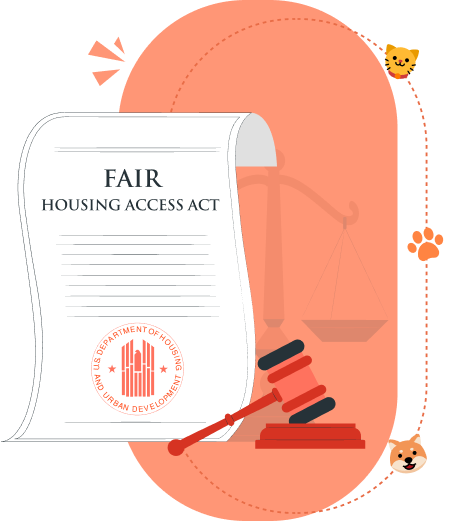How Maine Laws Treat Emotional Support Animals
Maine law uses the term “assistance animal” (in 5 M.R.S. § 4553) to cover what many call ESAs, along with service animals. Under Maine’s Human Rights Act, housing providers must treat ESA as a protected accommodation, meaning “no-pet” rules don’t automatically apply. In public spaces, however, only service animals (trained to perform tasks) have guaranteed access rights; assistance animals without task training generally are not covered in public accommodations.
Maine thus draws a line: in housing, ESAs are protected; in public venues, only service animals have legal rights.
Maine ESA Law Details You Should Know
Maine’s emotional support animal (ESA) laws follow both state and federal ESA laws, guaranteeing fair treatment and housing protections for individuals with emotional or psychological disabilities.
- Housing Laws: Fair Housing Act (FHA): The federal Fair Housing Act requires landlords in Maine to consider valid ESA accommodation requests, even in housing with “no-pet” policies. They cannot charge extra fees or deposits for ESAs.
- Americans with Disabilities Act (ADA): The ADA gives public-access rights only to trained service animals. Emotional support animals are not covered under this law.
- Air Carrier Access Act (ACAA): Following federal regulations, airlines no longer recognize ESAs as service animals; most treat them as pets.
- Employment Laws: There’s no legally protected right to have an ESA in the workplace. Employers may review requests under disability accommodation laws on a case-by-case basis.
Let’s explore these Maine ESA laws in more detail below.
Pricing
PSD Letter
Reviews
ESA By States
ESA Laws
Resources

